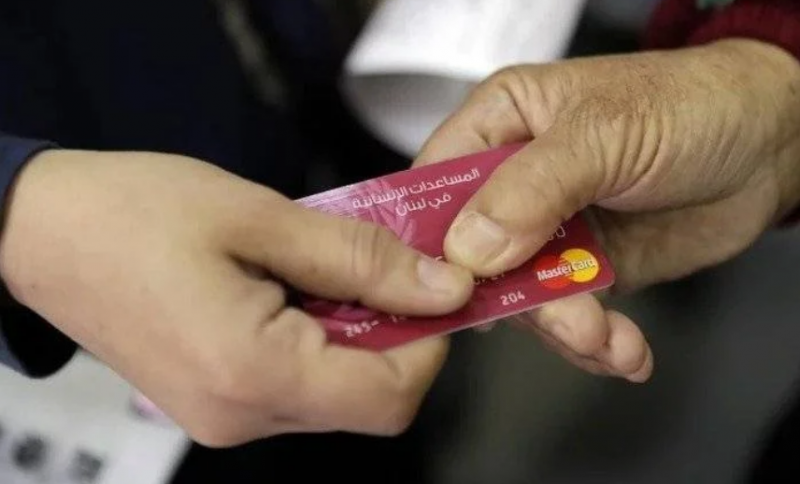
The new aid program will give recipients electronic payment cards, similar to the ones the World Food Program has already been using. (Credit: Joseph Eid/AFP)
BEIRUT — Social Affairs Minister Hector Hajjar announced Monday that cash from the long-awaited Emergency Social Safety Net program for the poorest families in Lebanon, which is funded by the World Bank, will be paid out to beneficiaries starting this week.
Here’s what we know:
• In a press conference at the Grand Serail in the presence of Prime Minister Najib Mikati and the World Bank’s regional director Saroj Kumar Jha, Hajjar said that each household will receive a maximum of $145 per month ($25 for each household with an additional $20 for each family member, up to a limit of six individuals). Hajjar said that the payments will be made gradually and that each week, a number of families will receive a text message to receive their payments “in dollars” through transfer money centers.
• The $246 million ESSN loan program was approved by the World Bank in January 2021 and by Lebanon’s Parliament in March of that year, but has been delayed in launching, in part because of changes to the deal that were made by Parliament without the approval of the World Bank.
• For his part, Jha said, “I want to confirm with the Social Affairs Minister that despite the delays, the payments for the ESSN program will start this week.” He also said that on top of the unprecedented economic crisis that Lebanon is suffering from “global events are expected to worsen the situation in Lebanon. Food inflation, which is already at 400 percent, is concerning.”
• The so-called government ration card, a separate program meant to pay $556 million cash assistance to vulnerable families, was approved by the parliament in June 2021, although its funding had not – and still has not – been secured. Registration for that program and the ESSN began simultaneously in December, with beneficiaries deemed eligible for assistance to be sorted into one of the two programs based on their level of need. The ration card program was initially envisioned as a way to offset the effects of the end of import subsidies on essential goods like fuel and medicine, but while the subsidies now have been largely lifted, the cash assistance programs have been delayed.
• Last week, Hajjar said that the World Bank has three demands before it will agree to fund the ration card program which include applying the ESSN program “with seriousness and transparency” and a “contribution from the government to fund the ration card program.
• During the press conference, Jha said that in addition to the demands mentioned previously before funding the ration card program, the government has to also approve a financial recovery plan which is still in the making.
• Jha told L’Orient Today after the press conference that a third party monitor will be responsible for overseeing the payment process. He said the monitor will be a non-governmental organization but declined to name the NGO, saying that the deal with it is being finalized.
Clarification: An earlier version of this post stated that the amount to be paid out would be $25 for each household with an additional $20 for each child, up to a limit of six. The additional $20 is for each family member, not only for children.